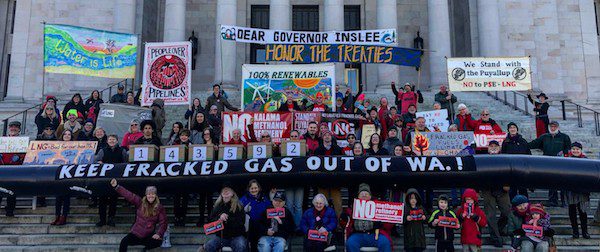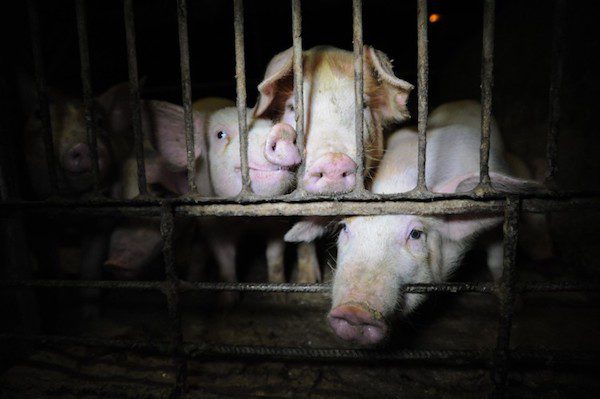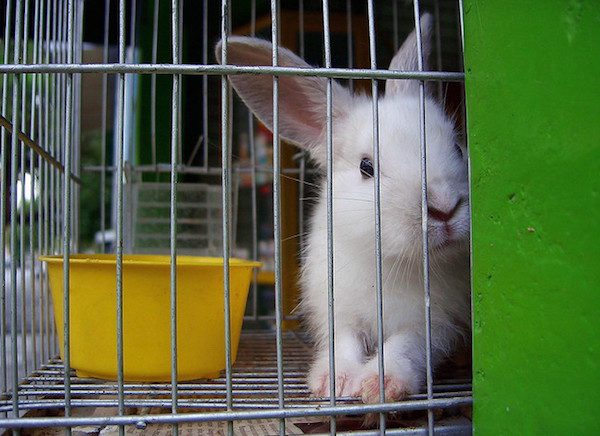


Washington Environmental Council: Earlier this month, Cowlitz County, Washington, issued the required shorelines permit for the world’s largest fracked gas-to-methanol refinery, proposed in Kalama, Washington. Now, the Washington Department of Ecology has 30 days to approve or deny the massive refinery. The Kalama Methanol Refinery would use more gas than all of Washington’s gas-fired power plants combined and would become the state’s single largest source of carbon pollution. As Governor Inslee said: “We don’t have the luxury of a 50-year transition phase. The impacts of climate change are already coming to bear and … unless we reduce emissions by half over the next decade, we will reach an irreversible tipping point.”
>>>Tell the Washington Dept. of Ecology to deny the shorelines permit for the Kalama Methanol refinery.
Rainforest Rescue: The government of Gabon gave a land concession to OLAM International, a Singapore-based agribusiness corporation, giving them the permission to clear half a million hectares of rainforest—an area more than three times the size of London—for oil palm and rubber plantations. However, there are dozens of Indigenous communities living on that land, where local people depend on healthy forests and savannas for their livelihoods, which are based on agriculture, hunting, gathering and fishing.
>>>Urge the Gabonese government and OLAM International to return the lands of the Ferra and Nanga communities.
Care2: The life of an American egg-laying hen in a factory farm is a miserable experience. Crammed into a cage almost too small for her body, she can’t stand up or even spread her cramped wings. Packed and stacked next to thousands of other hens surrounding her, she is terrified, confused, traumatized. Every day, she’s breathing in waste and suffers from a host of illnesses as she lays egg after egg. As consumers become increasingly aware of the cruelty of factory farming, grocers and restaurants have provided cage-free eggs and other more humane animal products. Cal-Maine Foods of Jackson, Mississippi, the largest egg producer in the United States, does provide cage-free eggs. But in the pursuit of ever more profits, they’re also threatening to increase their production of caged eggs.
>>>Urge Cal-Maine Foods to commit to 100% cage-free eggs.
Cause for concern…

- USDA slashes protections for pigs, workers and consumers with devastating new swine slaughter rule (Cassandra Cyphers, Lady Freethinker)
- Around 40 percent of all U.S. agricultural emissions stem from animal agriculture (Taylor Meek, Sentient Media)
- At U.N. climate summit, few commitments and U.S. silence (Somini Sengupta and Lisa Friedman, The New York Times)
- Trump revokes California’s waiver on emissions standards (Stephanie Ebbs, ABC News)
- Neonicotinoid insecticides cause rapid weight loss and travel delays in migrating songbirds (American Association for the Advancement of Science)
- The Amazon has seen more than 100,000 fires this year, causing a spike in air pollution (Yessenia Funes, Gizmodo)
- Undocumented elephant ivory trade ‘thriving’ in Massachusetts (WTOP/ABC Radio)
Round of applause…

- Following an intensive animal rights campaign, EPA unveils landmark plan to phase out taxpayer-funded animal testing (Justin Goodman, White Coat Waste)
- Animal and climate activists are merging—and for good reason (Jessica Scott-Reid, MacLean’s)
- New route to carbon-neutral fuels from carbon dioxide discovered by Stanford-DTU team (Mark Golden, Stanford University)
- A new crop of innovative plant-based, eco-friendly materials is giving the fashion industry a sustainable makeover (Eleanor Lawrie, BBC News)
- Why community-owned grocery stores like co-ops are the best recipe for revitalizing food deserts (Catherine Brinkley, The Conversation)
Parting thought…
“One touch of nature makes the whole world kin.” —William Shakespeare